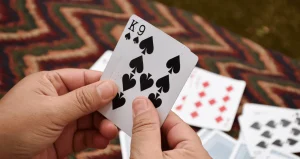The Impact of Rummy on Cognitive Skills and Memory

Think of your brain like a muscle. You know how you’d hit the gym to build biceps or strengthen your core? Well, your mind needs a workout too. And honestly, what if that workout could be as fun as a game of cards? That’s where rummy comes in. It’s not just a pastime; it’s a full-blown cognitive training session disguised as entertainment.
More Than Just a Game: Rummy as a Brain-Booster
Let’s be clear—we’re not talking about high-stakes gambling here. We’re talking about the classic skill-based game of arranging cards into valid sequences and sets. When you play rummy, you’re not just killing time. You’re actively engaging multiple parts of your brain. It’s a mental gym where the equipment is a deck of 52 cards.
The Specific Cognitive Skills Rummy Targets
1. Supercharging Your Memory
This is the big one. To play rummy well, you have to remember which cards have been picked and discarded. You’re tracking your opponents’ moves, trying to guess their strategies based on what they’re throwing away. It’s a constant, dynamic exercise in short-term memory recall.
Think of it like this: every discarded card is a tiny piece of a puzzle. Your brain has to hold onto those pieces, shuffle them around, and see the bigger picture. This act of active recall—pulling information from your memory on demand—is a fantastic way to keep your memory sharp. It’s like doing reps for your hippocampus, the brain’s central memory hub.
2. Sharpening Analytical and Strategic Thinking
Rummy isn’t a game of pure luck. Sure, the deal is random, but what you do with your cards is all about strategy. You’re constantly analyzing probabilities. “What are the odds the next card is the 5 of hearts I need?” You’re calculating risk versus reward with every single move.
This forces your brain into a state of focused problem-solving. You have a goal: form valid sets. You have obstacles: missing cards, opponents blocking your moves. Navigating this landscape requires serious critical thinking skills. You learn to adapt your strategy on the fly, a skill that’s incredibly valuable off the card table too.
3. Improving Concentration and Focus
In our world of endless notifications and multitasking, the ability to focus on one task is becoming a rare superpower. Rummy demands it. Let your mind wander for a second, and you might miss a crucial discard or misread an opponent’s hand.
The game trains your brain to filter out distractions and maintain a single-pointed focus for the duration of the play. This isn’t just good for cards; it’s a transferable skill that can improve your productivity at work or while studying.
4. Enhancing Decision-Making Under Pressure
Okay, it’s not the same pressure as a public speech, but there is a subtle clock ticking. You have to make decisions—often with incomplete information—and live with the consequences. Do you hold onto that high-value card hoping for a sequence, or do you discard it to avoid giving points to an opponent if you lose?
This process of rapid evaluation and commitment is a brilliant workout for your prefrontal cortex, the part of your brain responsible for executive functions and good judgment.
The Long-Term Benefits: It’s Not Just About One Game
Playing rummy occasionally is fun. But making it a regular habit? That’s where you might see some real, lasting cognitive benefits. It’s about neuroplasticity—your brain’s amazing ability to reorganize itself by forming new neural connections throughout life.
By consistently engaging in a complex task like rummy, you’re essentially telling your brain, “Hey, we need these circuits to stay strong.” It’s a proactive way to help maintain your mental agility as you age. Many regular players anecdotally report feeling sharper, quicker on their mental feet, and better at remembering everyday details.
A Quick Comparison: Cognitive Benefits at a Glance
| Cognitive Skill | How Rummy Helps |
| Short-Term Memory | Tracking discarded cards and opponents’ moves. |
| Pattern Recognition | Identifying potential sequences and sets from a random hand. |
| Strategic Planning | Formulating and adapting a winning game plan. |
| Probability Calculation | Assessing the odds of drawing needed cards. |
| Focus & Concentration | Maintaining attention on the game for extended periods. |
Playing Smart: A Note on Healthy Engagement
Now, here’s the deal. To get the brain benefits, the focus has to be on the skill and the fun, not on the stakes. The positive cognitive impact of rummy is tied to it being a challenging puzzle, not a potential financial windfall or loss. Always play responsibly and within your limits, treating it as a mental exercise first and foremost.
The next time you sit down to play a hand of rummy, whether online or with family, remember—you’re doing more than just playing a game. You’re giving your brain a comprehensive workout, strengthening neural pathways, and sharpening tools like memory and strategy that you use every single day. It’s a testament to the idea that sometimes, the best way to get smarter is to simply play.







